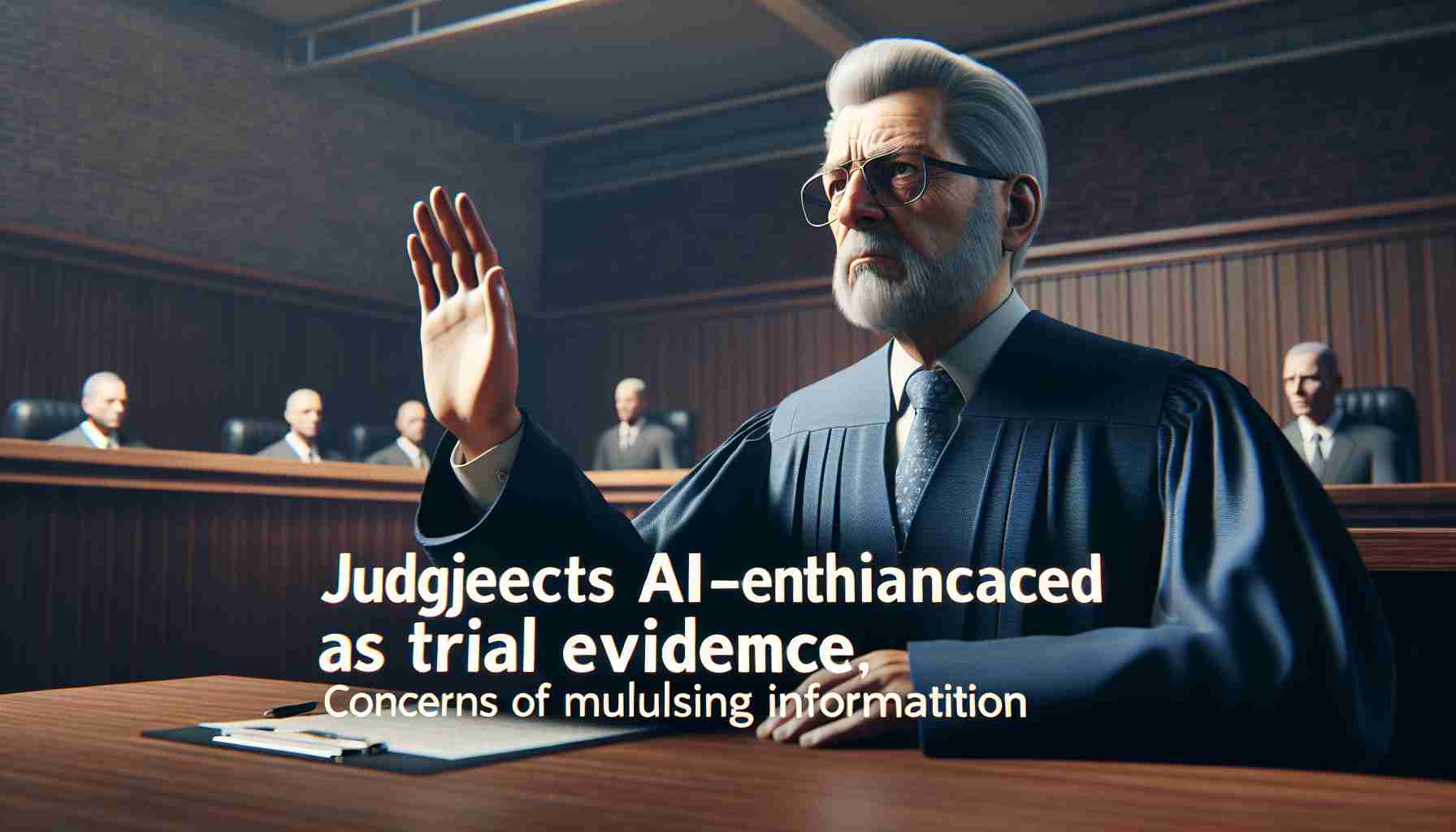A recent ruling by King County Superior Court Judge Leroy McCullough in Washington has established a groundbreaking precedent by banning the use of videos enhanced by artificial intelligence (AI) as evidence in a trial. The case involves Joshua Puloka, who is accused of killing three individuals. Puloka’s defense team sought to introduce cellphone video evidence that had been enhanced using AI technology. However, the judge determined that the use of such AI-enhanced evidence could potentially lead to confusion and could undermine the reliability of eyewitness testimony.
The decision, reported by NBC News, highlights the complex legal challenges surrounding the use of AI technology in the courtroom. Prosecutors argued that there is no established legal precedent for admitting AI-enhanced evidence, raising concerns about the accuracy and reliability of the enhanced video. The video editor who had enhanced the footage used software designed to improve visual appeal, but the court found that this may not accurately represent the truth.
Puloka has claimed self-defense in the killings, stating that he was trying to de-escalate the situation when he was shot at and returned fire, inadvertently hitting innocent bystanders. The shooting was captured on cellphone video, prompting Puloka’s defense team to seek enhancement of the footage using AI. However, the judge’s ruling now prohibits the use of such enhanced video in the trial.
This case comes at a time when lawmakers and legal experts are grappling with the implications of AI technology in the judicial system. The accessibility and capabilities of AI have raised concerns about the potential for misleading or inaccurate information being presented as evidence. The ruling by Judge McCullough underscores the need for clear legal frameworks and guidelines regarding the use of AI technology in the courtroom.
As AI continues to advance and become more widely used, it becomes vital to address the challenges it poses to the legal system. The use of AI-enhanced evidence may offer potential benefits, such as enhancing the clarity of audio or improving the visibility of video footage. However, it also raises questions about transparency, reliability, and the potential for bias in the enhancement process. As a result, policymakers and legal experts must work together to establish guidelines that ensure the fair and responsible use of AI in the courtroom.
Frequently Asked Questions (FAQ)
Q: What is AI-enhanced evidence?
AI-enhanced evidence refers to audio or video footage that has been processed or enhanced using artificial intelligence technology. This technology aims to improve the quality or visibility of the evidence, potentially making it more compelling or easier to analyze.
Q: Why did the judge ban the use of AI-enhanced video?
The judge banned the use of AI-enhanced video in this trial due to concerns about the potential for confusion and the impact on the reliability of eyewitness testimony. The court determined that the AI enhancement process could introduce inaccuracies or misleading information, which could undermine the fairness of the trial.
Q: What are the implications of this ruling?
This ruling sets a precedent regarding the use of AI-enhanced evidence in court. It highlights the need for clear guidelines and policies surrounding the use of AI technology in the judicial system to ensure fairness and the accurate presentation of evidence.
Q: How does this ruling impact the use of AI in the legal system?
The ruling emphasizes the importance of considering the potential limitations and risks associated with AI-enhanced evidence. It calls for a broader discussion among policymakers, legal experts, and technology developers to establish frameworks that address the ethical and legal implications of using AI technology in the courtroom.
Sources: NBC News
A recent ruling by King County Superior Court Judge Leroy McCullough in Washington has barred the use of videos enhanced by artificial intelligence (AI) as evidence in a trial. This decision has sparked discussions about the implications of AI technology in the courtroom.
The legal challenges surrounding the use of AI technology in court proceedings are complex. Prosecutors in the case argued that there is no established legal precedent for admitting AI-enhanced evidence, raising concerns about its accuracy and reliability. The court determined that AI-enhanced evidence could potentially lead to confusion and undermine the reliability of eyewitness testimony.
AI technology has raised concerns about the potential for misleading or inaccurate information being presented as evidence. The ruling by Judge McCullough highlights the need for clear legal frameworks and guidelines regarding the use of AI technology in the courtroom.
As AI continues to advance and become more widely used, it becomes essential to address the challenges it poses to the legal system. The use of AI-enhanced evidence may offer benefits in terms of enhancing audio clarity or improving the visibility of video footage. However, it also raises questions about transparency, reliability, and potential biases in the enhancement process. Policymakers and legal experts must work together to establish guidelines that ensure the fair and responsible use of AI in the courtroom.
This ruling sets a precedent regarding the use of AI-enhanced evidence in trials. It signifies the need for clear guidelines and policies surrounding AI technology in the judicial system to ensure fairness and the accurate presentation of evidence.
For more information on this topic, you can refer to the source article from NBC News.
The source of the article is from the blog crasel.tk

